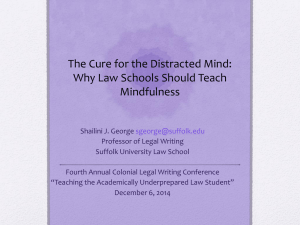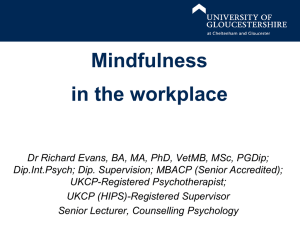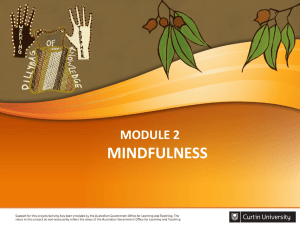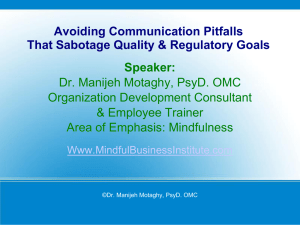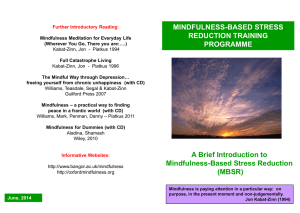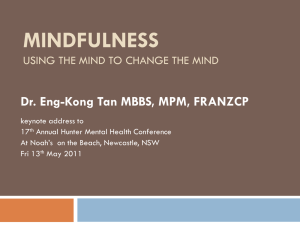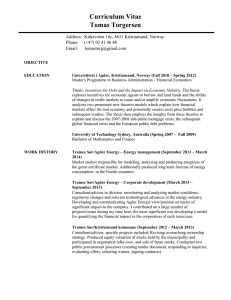Solveig Vindholmen Abstrakt Åpen arena 2014
advertisement
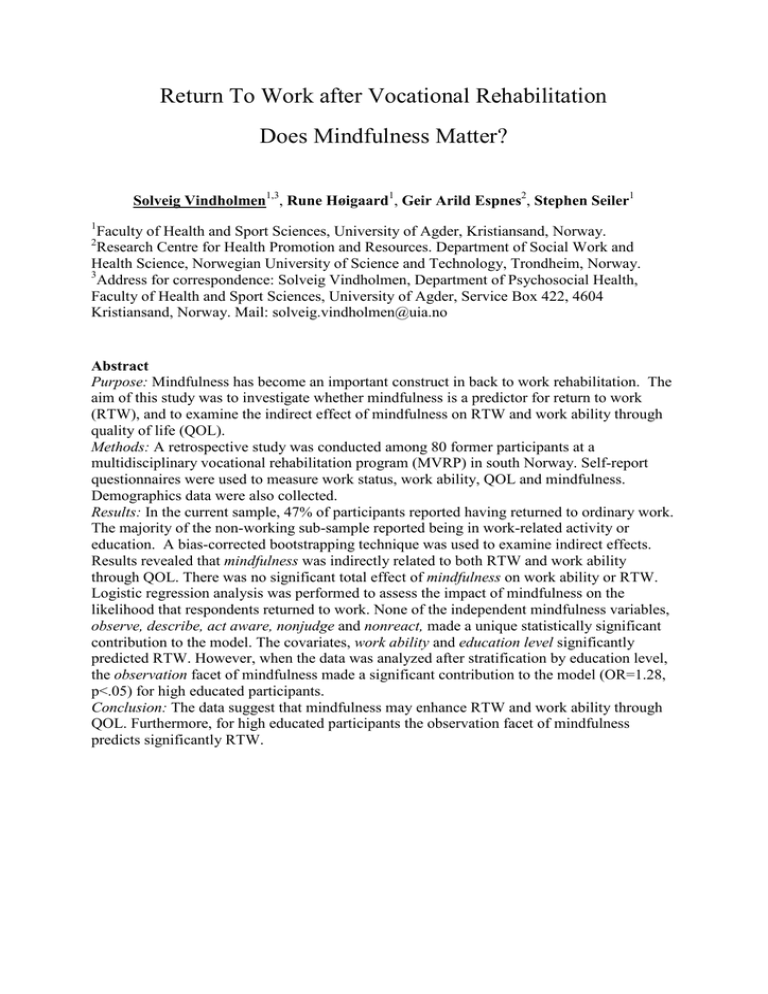
Return To Work after Vocational Rehabilitation Does Mindfulness Matter? Solveig Vindholmen1,3, Rune Høigaard1, Geir Arild Espnes2, Stephen Seiler1 1 Faculty of Health and Sport Sciences, University of Agder, Kristiansand, Norway. Research Centre for Health Promotion and Resources. Department of Social Work and Health Science, Norwegian University of Science and Technology, Trondheim, Norway. 3 Address for correspondence: Solveig Vindholmen, Department of Psychosocial Health, Faculty of Health and Sport Sciences, University of Agder, Service Box 422, 4604 Kristiansand, Norway. Mail: solveig.vindholmen@uia.no 2 Abstract Purpose: Mindfulness has become an important construct in back to work rehabilitation. The aim of this study was to investigate whether mindfulness is a predictor for return to work (RTW), and to examine the indirect effect of mindfulness on RTW and work ability through quality of life (QOL). Methods: A retrospective study was conducted among 80 former participants at a multidisciplinary vocational rehabilitation program (MVRP) in south Norway. Self-report questionnaires were used to measure work status, work ability, QOL and mindfulness. Demographics data were also collected. Results: In the current sample, 47% of participants reported having returned to ordinary work. The majority of the non-working sub-sample reported being in work-related activity or education. A bias-corrected bootstrapping technique was used to examine indirect effects. Results revealed that mindfulness was indirectly related to both RTW and work ability through QOL. There was no significant total effect of mindfulness on work ability or RTW. Logistic regression analysis was performed to assess the impact of mindfulness on the likelihood that respondents returned to work. None of the independent mindfulness variables, observe, describe, act aware, nonjudge and nonreact, made a unique statistically significant contribution to the model. The covariates, work ability and education level significantly predicted RTW. However, when the data was analyzed after stratification by education level, the observation facet of mindfulness made a significant contribution to the model (OR=1.28, p<.05) for high educated participants. Conclusion: The data suggest that mindfulness may enhance RTW and work ability through QOL. Furthermore, for high educated participants the observation facet of mindfulness predicts significantly RTW.
